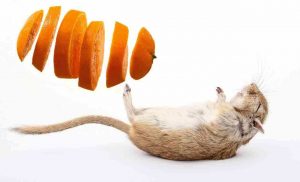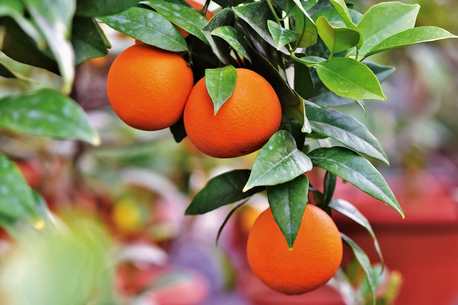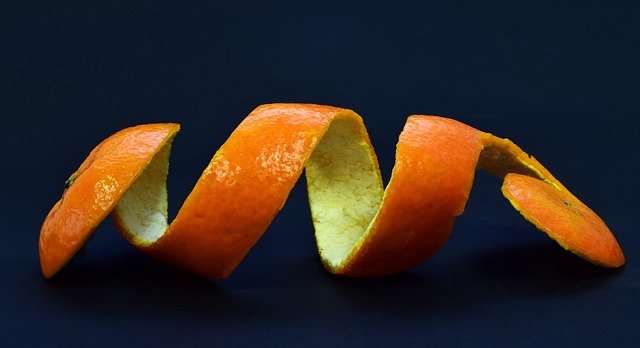Gerbils are great pets they are fun to watch and very entertaining so trying to feed them new foods is always fun to watch, but one has to be careful what he feeds his gerbils since there are some foods that can be dangerous for them.
Oranges are very popular fruits that can be found anywhere in the world, they are affordable and refreshing and very nutritious, but can gerbils eat oranges?
Gerbils should not consume oranges, they are acidic fruits and they contain 86% water content, so the gerbils which are desert rats not used to consume water-rich fruits in their natural diet should avoid them and all citrus fruits for that matter for their acidic content.
Feeding oranges to your gerbils increase the risk of diarrhea and gastric lesions and sore skin around their mouths when consumed in large quantities.
Table of Contents
Do gerbils eat oranges in the wild?
Gerbils are desert rats that are built to live in desert areas and feed primarily on seeds and dry food that contains very little water content.
Oranges are native to the Mediterranean countries where the flora is completely different from the desert so no gerbils don’t usually feed on oranges in the wild.
Feeding your gerbils foods that are similar to what they eat in the wild is the safest option, we recommend the Oxbow Garden Select Fortified Food for Gerbils (Check the current price at Amazon).
Gerbil seeds mix and hay pellets are not enough for a balanced diet, that’s why it is always a great idea to supplement it with other fruits and vegetables that contain the nutrients the seeds might lack but oranges although packed with good nutrients aren’t one of them.
Can baby gerbils eat oranges?
Baby gerbils can not eat oranges in fact, they can not eat any food adult gerbils can not feed on especially ones that could disturb their digestive systems.
Baby gerbils grow up rapidly and they are able to feed on adult food permanently at the very young age of five weeks.
When bought from a breeder or a store baby gerbils are often old enough to eat regular adult food, it’s the ones born in captivity that need more attention.
When you get new baby gerbils from a breeder or the store it is best to get the same food the breeder is using not to disturb their tummies with a sudden change in diet.
Young under six weeks old baby gerbils often lose weight when taken to a new home without their mothers, which is normal but check with a vet if it seems too much of a change.
From the age of three to five weeks, gerbil pups have a full set of fully developed teeth, and they can gnaw on solid adult food like seeds, fruits, and vegetables.
Are Oranges Good for gerbils?
Oranges are often associated with vitamin C but that’s not all they have to offer, 100 grams of orange contains:
- Calories: 47
- Water: 86%
- Protein: 0.9 grams
- Carbs: 11.8 grams
- Sugar: 9.4 grams
- Fiber: 2.4 grams
- Fat: 0.1 grams
These nutrients are sure good for gerbils but they also contain citric acid which is found in all citrus fruits, that and the 86% water content can present some troubles for the gerbils.
Are oranges safe for gerbils?

Oranges can’t be considered dangerous unless consumed in large quantities, the water content is fine and would in the worst-case scenario cause diarrhea, but the citric acid is what you should be worried about.
The citric acid found in oranges can cause gastric lesions in gerbils if consumed frequently and in large quantities.
So avoiding oranges would be the safest option especially that there are plenty of other safe alternatives that can be used to supplement the gerbil’s seeds and hay diet.
Do gerbils like Oranges?
Gerbils don’t seem to prefer oranges, mine anyway, gerbils would eat almost anything you give them so, if they do eat it it does not mean they like it.
I know that when given fruits vegetables along with fatty seeds they’ll choose those, but I’ve never seen gerbils prefer citrus fruits and that’s mainly because I never let anyone I know feed them to gerbils.
What we do know, is that gerbils like crunchy food they can gnaw on especially fat-rich seeds so lemons don’t really fit the texture or the content so I would assume that they don’t.
How much orange can gerbils eat?
It is best to avoid feeding your gerbils oranges in the first place since the citric acid and the water content are not too good for them, but if you do decide to feed it to them anyway at least do it in very small bite-size portions.
The citric acid found in a small portion is more than enough to cause diarrhea and disturb the gerbil’s gastric system so again it is best to avoid it.
How often can gerbils eat oranges?
We can’t stress this enough but we strongly recommend against feeding oranges to gerbils, but if you do it should be once in a long time.
Gerbils can’t handle too much water in their system and can cause diarrhea, that alone is enough reason to avoid it let alone the presence of the citric acid.
Gerbils are very sensitive to sudden changes in their diet and most breeders would give you some of their food to gradually change it, that’s why you have to be careful what you introduce to your gerbils.
Oranges nutrient facts

Oranges might not be suitable for gerbils, but no one can deny their very nutritious profile:
| Nutrition Facts | Serving Size1 cup, sections (180g) |
|---|---|
| Calories | |
| Total Fat | 0.2g |
| Saturated Fat | 0g |
| Trans Fat | 0g |
| Cholesterol | 0mg |
| Sodium | 0mg |
| Total Carbohydrate | 21.2g |
| Dietary Fiber | 4.3g |
| Total Sugars | 16.8g |
| Protein | 1.7g |
| Vitamin C | 95.8mg |
| Vitamin D | 0μg |
| Iron | 0.2mg |
| Calcium | 72mg |
| Potassium | 325.8mg |
| Phosphorus | 25.2mg |
Can gerbils eat other varieties of oranges?
There are many varieties of oranges that you can enjoy but as far as gerbils are concerned they are all the same, and that also includes all the citrus fruits like lemons.
In appearance and taste different varieties are very different but the nutritious components are almost the same, here is a comparative table for tangerines and oranges:
Tangerine | Orange | |
| Calories | 53 | 47 |
| Carbs | 13.3 grams | 11.7 grams |
| Fiber | 1.8 grams | 2.4 grams |
| Protein | 0.8 grams | 0.9 grams |
| Fat | 0.3 grams | 0.1 grams |
| Vitamin A | 14% DV | 4% DV |
| Vitamin C | 44% DV | 89% DV |
| Folate | 4% DV | 8% DV |
| Potassium | 5% DV | 5% DV |
As you can see they are almost identical, so the answer would be no gerbils can not eat any other varieties of gerbils.
Can gerbils eat orange peels?

Orange peel is even more dangerous for gerbils than the orange itself, it contains too many acids and probably causes your gerbil gastric lesions if consumed in large quantities.
So, gerbils can not eat orange peels or those of any citrus fruit for that matter, and they do not contain many nutrients anyway so it’s not worth trying.
Some pet parents enjoy giving citrus fruits to their pets because the reactions are fun to watch and entertaining but in the case of gerbils this could be dangerous.
Can gerbils eat orange seeds?
Gerbils are known for feeding essentially on seeds, so it seems logical enough to think about feeding your gerbil orange seeds when you are done enjoying the flesh.
Like most related plants, the seeds are slightly poisonous, containing small amounts of cyanogenic glycosides that release cyanide when digested.
The low concentration of these poisonous substances makes them neglectable for humans but a few seeds could turn up to be fatal for a small size pet-rodent like gerbils.
So gerbils can not eat orange seeds even in small quantities.
Conclusion: can gerbils eat oranges
- Gerbils can not eat oranges and all other citrus fruits because they contain citric acid and are water-rich.
- Consuming oranges might cause diarrhea, gastric lesions, and sore skin around the mouth area.
- Gerbils cannot eat all types of oranges and citrus fruits.
- Orange peels are far too acidic for gerbils to eat and the seeds contain poisonous substances that could be harmful to gerbils.
Gerbils should not be fed oranges especially that there are many other safe fruits and vegetable alternatives that gerbils like.
Other fruits and vegetable gerbils can eat
- Bananas
- Peanuts
- Apples (without seeds)
- Almonds (not bitter almonds)
- Carrots
- Celery
- Broccoli
- Raspberries
- Green beans
- Mealworms
- Cheese
- Cheerios
https://www.webmd.com/food-recipes/health-benefits-oranges#1
https://www.healthline.com/nutrition/acidic-foods
https://www.bupa.co.uk/newsroom/ourviews/ten-water-rich-foods-hydration
https://www.health.com/food/health-benefits-oranges
https://www.medicalnewstoday.com/articles/272782
https://nutritiondata.self.com/facts/fruits-and-fruit-juices/1968/2
https://fdc.nal.usda.gov/fdc-app.html#/food-details/169097/nutrients






